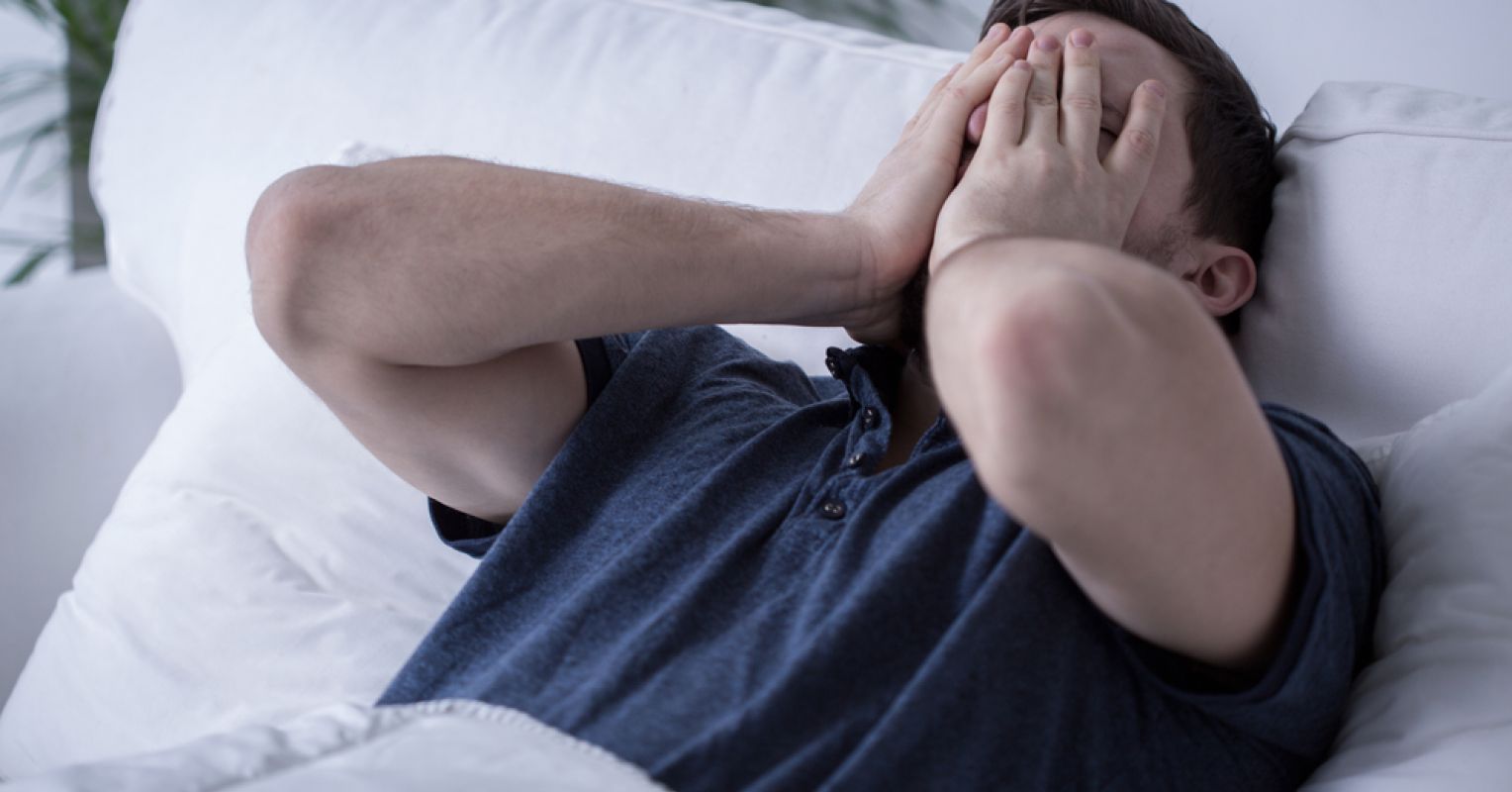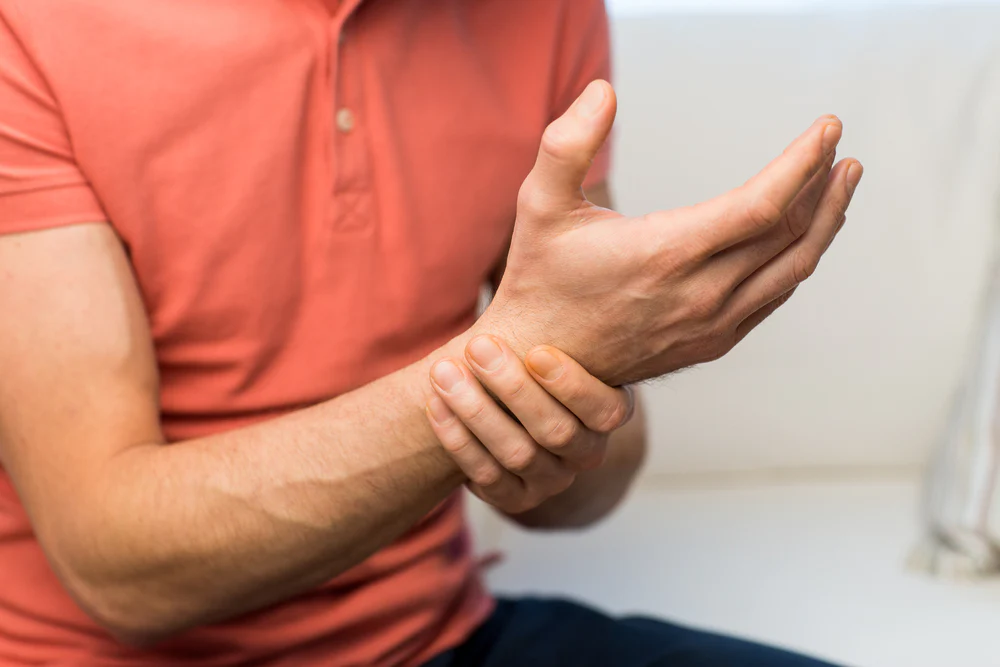Sleep Disorders and Conditions
Sleep Paralysis: When You’re Awake, But Can’t Move
Have you ever experienced sleep paralysis? This is a frightening condition where, upon waking up, you are completely alert but unable to move your body. You might feel a sense of heaviness and pressure on your chest and a feeling of an ominous presence in your room. Despite your best efforts, you can't move or scream, and you are fully aware of your paralysis. It can be an alarming experience, but it's more common than you might think. In this blog, we'll explore exactly what happens in the brain during an episode of sleep paralysis, who is at risk of experiencing it, and tips for reducing its occurrence.
Sleep Paralysis: Definition, Symptoms, and Causes
Sleep paralysis is a common sleep disorder that causes a temporary loss of muscle control, known as muscle atonia, immediately after waking up or falling asleep. While estimates vary, researchers suggest that approximately 8% of the general population and over 30% of psychiatric patients may experience sleep paralysis episodes during their lifetime. Sleep paralysis is often accompanied by visual hallucinations, which can be bizarre and terrifying. These hallucinations fall into three categories: intruder, incubus, and vestibular-motor hallucinations.
Intruder hallucinations: sensing and seeing threatening entities, often referred to as demons or spirits, in vivid hallucinations of an intruder in the bedroom.
Incubus hallucinations: a sense of severe pressure on the chest, accompanied by an inability to breathe due to choking or suffocation.
Vestibular motor hallucinations: illusory feelings of movement, including out-of-body experiences, such as flying or hovering over one's own body.
Unlike dreams, sleep paralysis hallucinations occur in a parallel conscious state between waking and sleeping, which can cause significant fear in up to 90% of people. In fact, about 1 in 10 people who experience sleep paralysis will report clinically significant levels of stress that interfere with their quality of life. However, there is some research suggesting that pleasant experiences may be common (in up to 23%) in people who have recurrent sleep paralysis. The likelihood of pleasant sleep paralysis episodes may increase with higher levels of trait openness to new experiences. In addition to personality traits, the perception of sleep paralysis episodes may also depend on social and ethnic constructs, as well as local beliefs and traditions. If you are experiencing sleep paralysis episodes that are affecting your quality of life, it is important to speak with your healthcare provider to discuss treatment options.
Types and Classifications of Sleep Paralysis
Sleep paralysis is a sleep disorder that can be classified based on its frequency and association with other neurological sleep disorders. There are two main types of sleep paralysis:
Isolated Sleep Paralysis: This type of sleep paralysis occurs as isolated episodes and is unrelated to any other sleep disorder or medical problem.
Recurrent Sleep Paralysis: This type of sleep paralysis is characterized by multiple recurring episodes, often in the context of narcolepsy, a rare neurological sleep disorder that affects the regulation of sleep-wake cycles.
In addition to these types, there is a subtype of recurrent sleep paralysis called recurrent isolated sleep paralysis (RISP). RISP is a very rare condition, occurring in less than 0.5% of healthy individuals, and is marked by multiple episodes over time that are unrelated to any other sleep disorder or medical problem. However, RISP may cause excessive daytime sleepiness due to the fear of sleeping. It's important to seek medical attention if you experience symptoms of sleep paralysis to determine the best course of treatment.
Understanding Sleep Paralysis: Causes and Risk Factors
Sleep paralysis is a frightening and distressing experience that affects a significant number of people. Despite ongoing research, the exact causes of sleep paralysis remain unknown. However, scientists speculate that it is caused by a mixed state of wake and rapid eye movement (REM) sleep, during which the brain intentionally blocks any movement (muscle atonia) to prevent acting out our dreams. During sleep paralysis, this REM-induced muscle atonia may continue into our waking state, leading to a feeling of being both consciously awake and locked in dream sleep.
In addition to the unknown causes, studies have also identified several risk factors and triggers for sleep paralysis. These include shift work and daytime sleeping, obstructive sleep apnea, nighttime leg cramps, anxiety, depression, post-traumatic stress disorder, bipolar disorder, and panic disorders. If you experience sleep paralysis, it is essential to seek medical advice to identify and address any underlying conditions that may be contributing to your symptoms. By understanding the causes and risk factors associated with sleep paralysis, you can take steps to minimize the likelihood of experiencing this frightening condition.
How to Prevent Sleep Paralysis
While sleep paralysis is usually not considered a serious medical condition, experiencing recurrent and bothersome symptoms can interfere with your quality of life. If you're having persistent episodes of sleep paralysis, it's a good idea to talk with your doctor to rule out other sleep disorders such as narcolepsy.
Currently, there are limited treatment options for sleep paralysis. Psychological and behavior interventions, including cognitive behavior therapy, have shown some promise in preventing episodes and reducing their severity. However, further research is needed to assess their effectiveness. Practicing optimal sleep hygiene may also help minimize the likelihood of experiencing sleep paralysis. Since episodes of sleep paralysis may be triggered by overnight awakenings during REM, techniques to improve sleep consistency and continuity, such as sticking to a regular sleep schedule and avoiding stimulating activities before bedtime, may be beneficial. By following these tips, you can help prevent sleep paralysis and improve your overall sleep quality.
Tips and Tricks for Better Sleep Hygiene
If you're struggling with getting quality sleep, it's essential to evaluate your sleep hygiene. Here are some tips and tricks to improve your sleep habits and optimize your sleep:
Consistency is Key: Stick to a sleep schedule, even on weekends.
Stay Active: Exercise daily, but avoid strenuous exercise within 3 hours before bedtime.
Cut the Stimulants: Avoid caffeine and nicotine after 2 PM, and avoid alcoholic drinks before bed.
Create a Sleep Sanctuary: Ensure your bedroom is comfortable, dark, cool, and quiet.
Watch What You Eat: Avoid large meals and beverages late at night.
Think Dark or Dim: Limit the use of bright lights in the 3 hours before bedtime.
Daytime Light: Daylight helps regulate the circadian rhythm; step outside into natural sunlight in the morning for at least 15-30 minutes.
Nap Times: Naps may help give a quick refresh, but avoid them after 3 PM.
Relax with a Ritual: Unwind before bed with a hot bath and create a ritual like reading or listening to relaxing music before bed.
By adopting these sleep hygiene practices, you'll be on your way to better sleep and overall well-being. Try incorporating these tips and tricks into your daily routine, and see how it transforms your sleep quality.
Sleep Disorders and Conditions
Sleepless in Psychiatry: Unraveling the Role of Sleep in Neuropsychiatric Illnesses
Sleep Disorders and Conditions
When Sleep Disorders Clock In: Insomnia’s Impact on Productivity of Young Adults
Sleep Disorders and Conditions
Why Does My Body Twitch When I Sleep
Sleep Disorders and Conditions
Hypnic Jerk: Why Do I Twitch in My Sleep?
Sleep Disorders and Conditions
When your Arm Falls Asleep: Causes and Treatments
Sleep Disorders and Conditions







